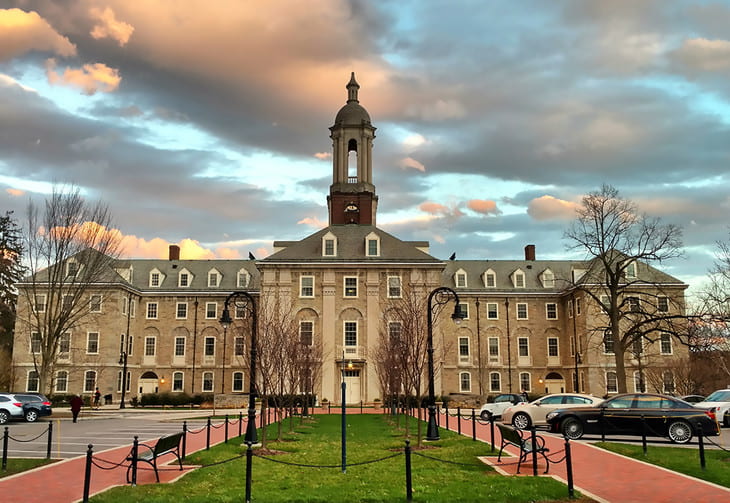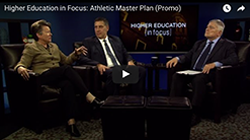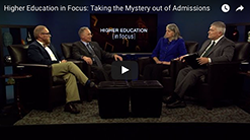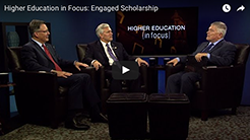This week, President Barron invited Nicholas P. Jones, executive vice president and provost, to share details around the ongoing work taking place at Penn State in response to the global coronavirus outbreak.
As the rapidly evolving novel coronavirus outbreak continues to make headlines across the globe, I want to share the many proactive steps Penn State is taking to confront this threat and manage the risks to our community. As a parent of a Penn State student, I understand the concern expressed by parents, students and employees alike — and on behalf of the leadership at Penn State, I want to be open and share facts about what is happening publicly and at Penn State as it relates to COVID-19.
At this time we have no known novel coronavirus cases at Penn State. However, as a University, plans are being made across a number of fronts and we are thinking holistically about how coronavirus may impact both our operations and our lives. Questions such as how we can assist students who are fearful or unable to return home and may be in need of spring break or even summer housing; the viability of moving classes online if in-person courses would no longer be feasible; the preparedness of our campus health centers; and how we approach commencement and other large-scale events are among the many considerations we face.
What began as an unfamiliar virus a few short months ago now has potential worldwide implications, including in areas where our students, faculty members and staff may be located or traveling to, both abroad and increasingly here in the United States.
Data from the outbreak in China suggests that approximately 10% of the cases recorded are in patients under 30 years old, and the Centers for Disease Control and Prevention (CDC) continues to reiterate that the immediate risk to the American public is low, particularly among healthy college-age adults. However, much about this virus remains unknown, and as this is a complex and rapidly changing situation, we are keeping the health and safety of our entire community at the forefront of our decision-making. Rest assured that our actions to date and in the future are informed by guidance from the CDC and with our most vulnerable populations in mind.
Out of an abundance of caution, we are focusing on 12 critical priority areas to mitigate future impacts to the University, and I have appointed key University leaders to assemble the proper expertise to plan for and address potential issues for each focus area. These 12 action groups are as follows:
- Communications
- Campus health preparedness and response
- Study abroad and support of international students
- General emergency preparedness and response
- Community interaction and coordination
- Semester/summer course delivery interruption
- Commencement
- Summer and emergency accommodations
- Enrollment management
- General business continuity
- Research support
- Athletics, camps and other large events
In the short term, Penn State has moved quickly to protect the health and safety of our community traveling abroad in areas impacted by this virus. We have canceled all international spring break travel for embedded courses and student organizations, and we have placed China, Italy and South Korea on our restricted list for University-affiliated student travel. This includes canceling all student programs in Italy and South Korea and assisting students with returning home. In addition, we are strongly discouraging faculty and staff travel to these countries, which would be subject to my review and approval.
To help prevent potential exposure in or near our campuses, we have issued guidelines for all Penn State students or employees returning from any country with a CDC Level 2 or Level 3 travel warning, including requiring a 14-day quarantine period for travelers returning from a Level 3 country before they return to campus. Full information about Penn State’s quarantine requirements — which echo CDC guidelines — can be found at https://sites.psu.edu/virusinfo/, the University’s dedicated website where the latest coronavirus-related news, information, resources and guidance can be found. This includes information for parents and families who are worried about loved ones returning from overseas and how to approach home quarantine and prevent possible spread to other members of the household.
Penn State must and will be vigilant in its response to this global health challenge. University leaders, together with our health and safety experts, will continue to make decisions based on facts and with the well-being of the Penn State community in mind. As this is a complex and constantly evolving situation, I urge all members of our community to bookmark https://sites.psu.edu/virusinfo/ for the most up-to-date information, and to pay attention to Penn State News and Penn State Today for critical updates.
The partnership and vigilance of our entire community is needed at this time to make responsible decisions. Let’s support each other and take a moment to reflect on the actions you can take to keep yourself — and those around you — as safe as possible.
Nicholas P. Jones
Executive Vice President and Provost





